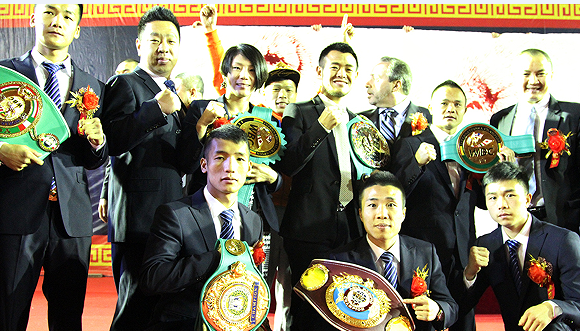Boxing in China faded into the background in the late 50s, but had a revival in the 80s. Since then, there have been notable achievements, but China has not quite become the boxing powerhouse it could be.
Boxing is a rising sport in China. Since been reintroduced to the country in 1986, the sport has seen phenomenal growth. The gold medal performances of Zou Shiming in the 2008 and 2012 Olympics have also brought the sport into the limelight. So how did the boxing develop in China, and is it capable of becoming a cash cow like it is in the US?
Zou is a boxing icon in China, who not only shone in the Olympic Games, but also in the professional circuit. He went pro in 2013, and received his sponsorship a mere two months later. Before that, he did not even have enough money to pay for his training in the US.
"I am very lucky to be sponsored by a famous local brand soon after going professional. They provided me with my first pair of competition shoes and clothes after I became a professional boxer," Zou said.
Boxing's high revenue can be generated in many ways, including through sponsorships, ticket sells, and pay-per-view. In China, boxing has not developed enough to be financially solvent, and sponsorships are rare. But with the boom in interest for all sports in recent years, ticket sales seem to be much better than before.
"Right now we've done three power events here in China. We have over 5,000 people to come to watch," said Li Sheng, SECA sports management CEO.
A big opportunity for profit that China has never touched on before is pay-per-views, a key factor in the boxing business model in many countries.
"That's a huge income that is currently not available in China, because in China there is no pay review. So even for TV rights or media rights sells, because the boxing is still in the developing stage, we can't demand a lot license fee to support it," Li said.
Many believe China has a huge market for boxing, based on the country's huge population and rising interest. But there needs to be a way to promote the sport effectively in order for it to gain traction.
"For right now, I think what China need is a star that people can get behind. I think that's the only thing holding the sport back. They need local stars that people can really cheer for. I think that's coming; they are definitely seeing more of that, and the sport grow as a whole," said James Oliver, an amateur fight promoter.
With such so much market potential, more and more foreign companies and promoters are eyeing China.
